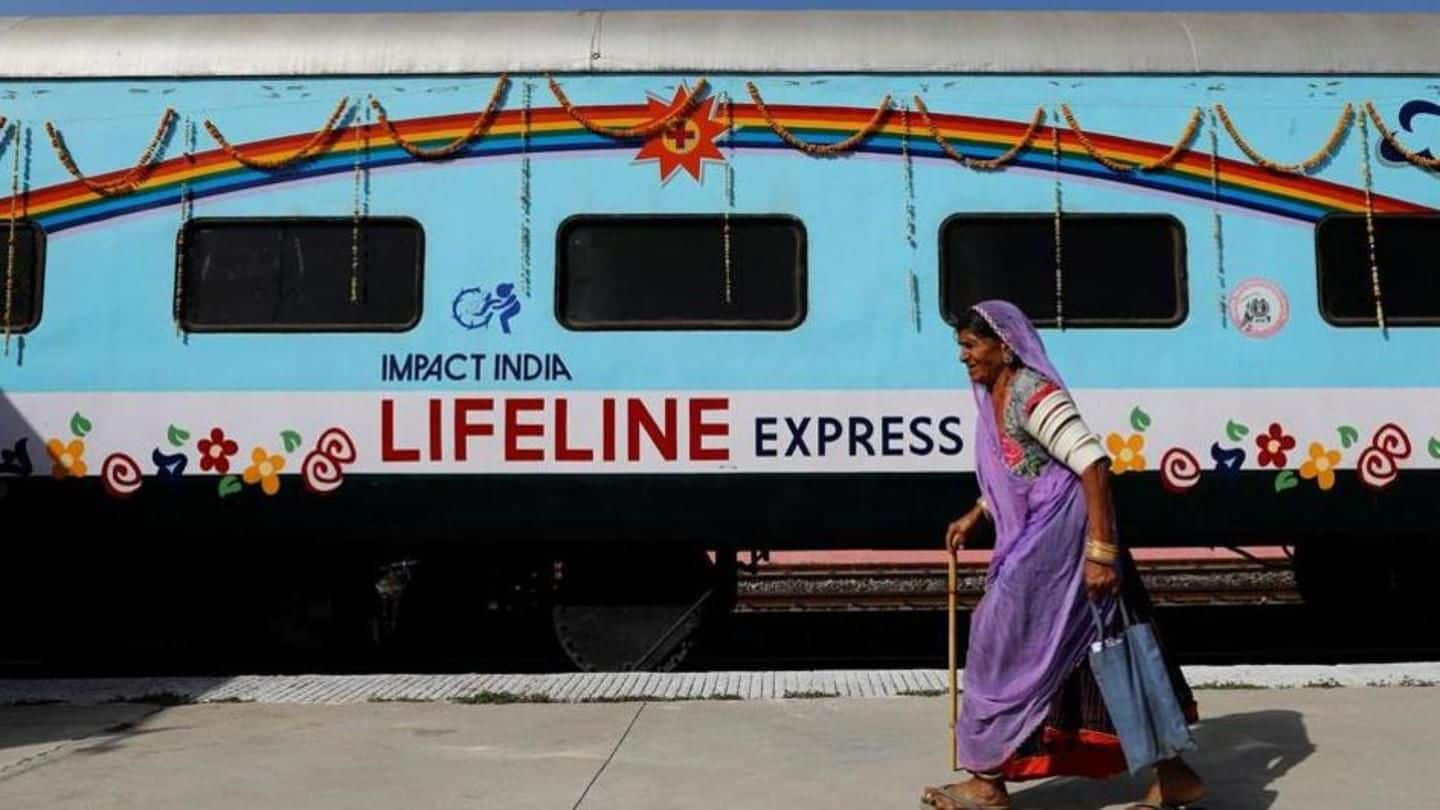
World's first hospital-on-wheels is a 'lifeline' for millions in India
What's the story
India's healthcare system is in shambles, particularly affecting the millions in rural areas. Lack of access combined with excessive costs has left an innumerable number of people helpless. To bridge this stark gap, Impact India foundation launched the Lifeline Express, the world's first train-hospital, 27 years ago. Since then, it has conducted over 30 free surgeries daily, giving new hope to lakhs.
Lack of access
The lack of medical professionals in rural India is alarming
Here are the facts: India's healthcare spending is one of the lowest worldwide. In 2014, it stood at 5% of GDP. This means fewer and understaffed hospitals, overworked doctors, ill-trained ancillary staff, and substandard facilities. Moreover, the rural-urban divide is stark: private hospitals, primarily urban, account for 63% of India's total hospital beds. 74% doctors cater to only city people.
Excessive cost
People forced to spend 62% of healthcare-expenses from own pocket
The holes healthcare costs burn in people's pockets is also alarming. While the government spends Rs. 6,300 on its employees for healthcare, the amount spent on citizens is just Rs. 1,108. In fact, as taxpayers bear policymakers' cost burdens, 39mn people have been pushed below poverty line for healthcare expenditure alone, as they had to spend Rs. 2,394 from their own pockets.
Launch
Lifeline Express travels to India's deepest corners
The Lifeline Express was launched to meet these two gaps: providing medical care in villages while preventing people from going bankrupt over it. The train travels across India, to its remotest corners, halting in one place for a month before proceeding. It treats a range of ailments, including cataract surgery, plastic surgical correction of cleft lip, counseling, immunization, nutritional assessment, cancer and more.
Equipment
A fully equipped hospital on wheels catering to lakhs
A look inside won't disappoint: the train, started on July 16, 1991, is equipped with two operation theaters with 3+2 operating tables, a sterilization area, two recovery rooms, power generators, a pantry car, storage, and accommodation for its 20-member staff. Most doctors work for free. Medical students use the opportunity to hone skills while doing community work.
Quote
Not just treating people, the Express also educates doctors
The train kills more birds with one stone: it ensures it educates local doctors. "We show them how an operating theater should look. We make sure a local doctor is there during surgery so he can do follow-ups later on," said Mehak Sikka, Medical Officer.
Status
Another train-hospital expected to be launched this year
Till date, the Lifeline Express has helped more than 10L people and conducted 1,30,000 operations across 191 stops, said Anil Darse, deputy project director of the Lifeline Express. Impact India is assisted in this initiative by the government, the World Health Organization and the UNICEF. Another similar train is expected to be launched this year, which will boost India's move towards universal healthcare coverage.